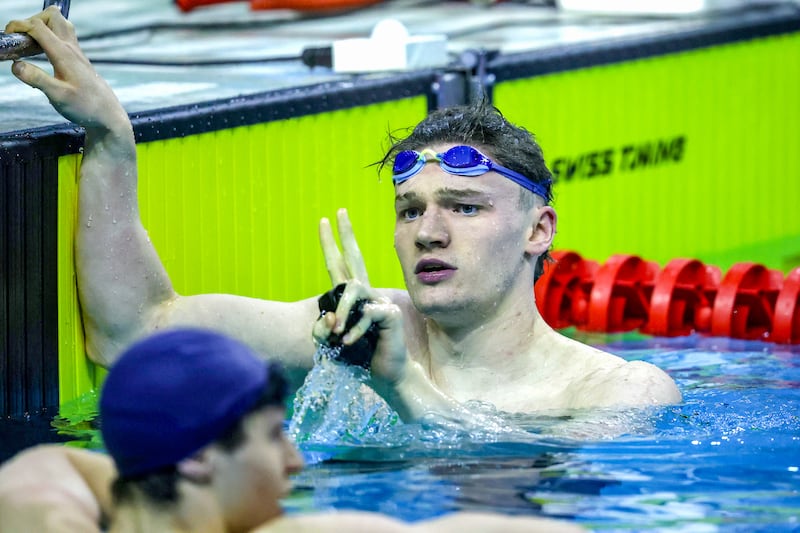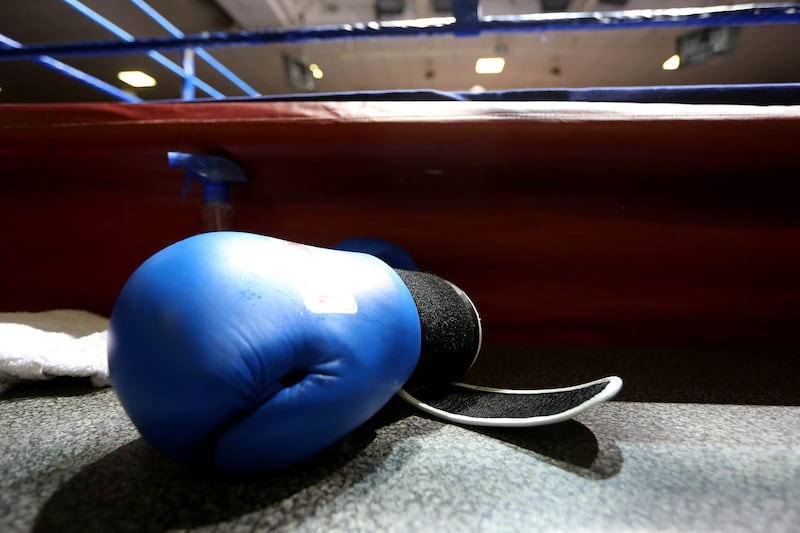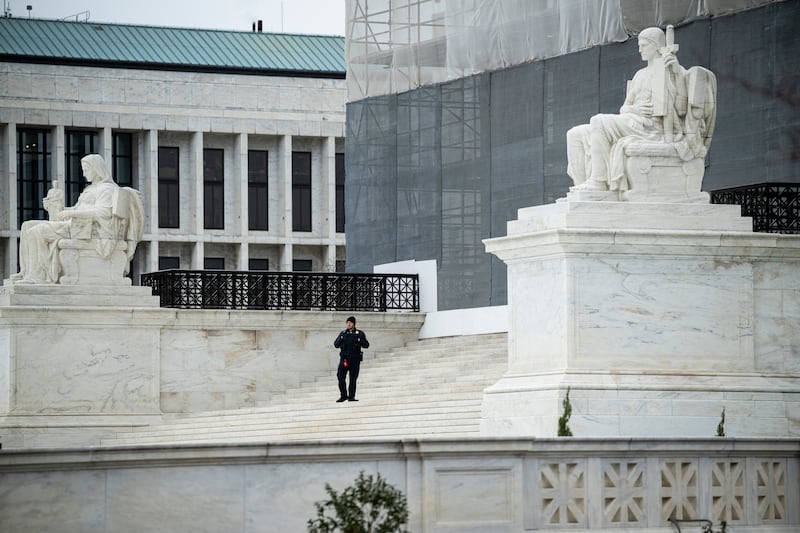Last year Pat Ryan invited Jimmy Barry-Murphy to speak to the Cork panel. None of them were born when he won his last All-Ireland as a player in 1986, and the matches and medals are hidden in the attic of his life now.
The glory that lived on in his name, though, was a different phenomenon. Testimonies were available, if you needed proof, but that process concluded a long time ago and was never exposed to the radiation of second thoughts. The glory and his name were fused and inseparable. He couldn’t deny the things he had done.
But he wasn’t a museum piece. Dotted around the room were people with whom he had shared vivid experiences. Ryan and two of his selectors, Wayne Sherlock and Brendan Coleman, won an All-Ireland with Cork in 1999 when Barry-Murphy was manager. Patrick Horgan, Séamus Harnedy and Conor Lehane had played on the team Barry-Murphy brought to the 2013 final, when Cork led for 104 of the last 114 seconds and lost in a replay.
In two stints, Barry-Murphy managed Cork for a total of nine years, which is longer than anybody else. On both occasions Cork were in a hole when he took over and the digging continued for a while. The courage he needed to do the job wasn’t blind, but it was blinkered. Past triumphs and public devotion offered no indemnity against bad outcomes. The suffering was unavoidable. He wasn’t spared.
RM Block
“Managing Cork is a bit of a drug,” he says now. “You take it on knowing the risks that are involved, but it’s only when you’re in there that you suddenly realise, ‘This is hard work. We’re not as good as I thought we might be’. I did feel the pressure of it an awful lot. It was very stressful at times, on a personal level, carrying the pressure of the public. It was hugely stressful.
“I regret coming back to manage the team in 2012. I do really. I had been out of the scene. The draw is there when you’re asked, the temptation is there, but I do regret going back. If I had my time over I wouldn’t have done it again. I was out and I should have stayed out.”
Barry-Murphy’s feelings about his second stint, though, are strangely at odds with how those seasons panned out. Cork won a Munster title after an eight-year hiatus and reached an All-Ireland final for the first time in seven years, despite long term mismanagement of Cork’s talent pathways.
In the 2013 final Cork had been second best for most of the match but they still forced Clare to equalise with the second last puck. RTÉ grabbed Barry-Murphy for a snap interview while the game was still hot on his cheeks or before he had time to wrestle with his feelings. In his public dealings Barry-Murphy had always been dignified and in front of the cameras he didn’t crack.
![Jimmy Barry Murphy during the 2013 final against Clare. 'I was sick when that [equalising] point went over the bar. I didn’t feel we’d win the replay. I knew our chance was gone.' Photograph: James Crombie/Inpho](https://www.irishtimes.com/resizer/v2/FWXTAAIPMNCMNHYZWNQLCD5VJA.jpg?auth=3843f29cf871eb154e2d996adfafa60646cc0995d778407d738412a1b464c803&width=800&height=528)
“I don’t know how I did it. I just about managed it because I was gutted. I was sick when that point went over the bar. I didn’t feel we’d win the replay. I knew our chance was gone. I knew it. We had one chance. We had taken the lead at the right time. Hoggie [Patrick Horgan] got a fantastic point. Nobody else would have got it and it was ripped away from us.
“Look, I’ve had plenty of good days in Croke Park. You’ve got to be magnanimous. You can go ranting and raving and blaming everybody. If you hang around long enough there’s swings and roundabouts. We got away with a couple as well over the years.
It would have been a sensational All-Ireland for Cork given where we’d come from. It certainly wasn’t the most talented Cork team that ever went to Croke Park but, my God, they were the most committed
“But the one I really do regret is 2013. I wake up every morning and think about that. I do. It would have been a sensational All-Ireland for Cork given where we came from. It certainly wasn’t the most talented Cork team that ever went to Croke Park but, my God, they were the most committed.”
When Ryan made six changes for Cork’s second game in this year’s Munster championship the only precedents in Cork’s modern history were on teams that Barry-Murphy managed. In 1999 Cork picked six debutants for the first round against Waterford; in 2013, the team that reached the All-Ireland had six players who made their first championship start that year.
In Barry-Murphy’s managerial career it evolved into a pattern; he had never been afraid to trust young players. In 1996, when Limerick slaughtered Cork in Páirc Uí Chaoimh in Barry-Murphy’s first championship match in charge, Joe Deane and Seán Óg Ó hAilpín made their debuts as teenagers – though he wonders about that now.
“I shouldn’t have done that with Joe Deane and Seán Óg. That was a mistake at the time. Putting them in too young I would say was a mistake. I often said I hope they didn’t blame me for it because it was a hard education for them.”
For every manager, though, generating renewal is an adversarial business. When Barry-Murphy returned for his second stint, there were players on the panel who had been around a long time. Dónal Óg Cusack, John Gardiner and Ó hAilpín were on the Cork panel in 2012 with Barry-Murphy but not in 2013. Those partings were never going to be straightforward.
“It was hard. I did feel the pressure of all that. It did get to me at the time. I often thought about Brian Cody afterwards, how he was able to do it. To drop players and drop players off a panel who had won All-Irelands for you. I didn’t fancy doing that. It’s just me. I wasn’t able. I didn’t fancy that.
“I had to deal with that in my own way. It’s not nice and it was difficult, and I found it difficult. I don’t have any sense that I was a hard man or anything like that – I wasn’t. I just tried to do what I thought was right. Certain players will feel they could have played on – that’s human nature.”
The toughness in him was below the surface. Cork hadn’t lost at home in the championship since the 1920s when Limerick beat them by 16 points in 1996. In a post-match interview Joe Quaid said that Cork’s tradition had been washed “down the Lee”. Poisonous letters were published in the local press, some of them without full names and addresses. He cut out one scathing comment piece and kept it in his drawer at work for years, as if he was keeping the pain on file.
“After the match I was in a state of shock,” Barry-Murphy said years later. “Literally I was shell-shocked at how bad we were and my part in it because I was the coach. I’m a proud Cork man and here I was having presided over this shambles. Which is all it was. I was a disgrace as a coach and naive in our preparation.”
In many ways it was the greatest challenge of his sporting life. On his watch, Cork had bottomed out. Three years later they won the All-Ireland with the youngest team Cork had ever brought to Croke Park.

When they returned to the dressingroom the Cork trainer Teddy Owens stood on a bench and held up a photograph of the Cork management taken during the 1996 game against Limerick, devastation and bewilderment grafted on to their faces.
“Take a look at that,” roared Owens, “and take a look at Jimmy now.”
Had he changed? Or had we been missing something all along?
***
At the end of 1972 Barry-Murphy signed for Cork Celtic. He had been sent off for St Finbarr’s in an under-21 match against Glen Rovers, a rivalry prone to bushfires, and suspended for three months. A week later he scored five goals for Wilton United in the FAI Youth Cup and Paul “Golden Boy” O’Donovan, the manager of Cork Celtic, called to his house. Barry-Murphy was 18, before he was JBM – the stage name given to him as a matinee idol.
A couple of months earlier he had scored 2-1 for Cork in the All-Ireland minor football final, and 10 months later he would score 2-1 for Cork in the All-Ireland senior football final, but for a short interlude he was a tropical species in a small goldfish tank.
“It was a different world completely to me. You had to look after yourself. It was physical, it was tough. You’d get to Dublin and you’d have to make your own way to the hotel for a snack before the match and then walk to Dalymount Park. No bus or anything. In the dressingroom they were ruthless. They didn’t take any prisoners. They didn’t give a care who you were. It was a fantastic experience. It made a man of me, I think. It toughened me up.”
He scored on his debut, and even as an alien in that micro-world he caused a stir. Jimmy Magee used to preview the League of Ireland games on radio and one weekend he urged his listeners to get across to Dalymount Park to watch “this young lad from Cork”.
“I remember thinking after, ‘I hope they got there early’. I was off at half-time. I got the hook from Paul [O’Donovan]. I didn’t fancy it in the end. It was hard going. It wasn’t my time of the year. Mucky pitches. It was a nightmare for me, the weather. I hated the wet and cold. I hated everything about sport at that time of the year. You’d come alive in the summer.”
As I went on – Munster finals, All-Ireland finals – I felt the pressure a lot more. In the 80s it really got to me. I got to me a lot when I was captain [1982-83]
As a hurler and footballer, though, Barry-Murphy had a soccer player’s imagination. His game was about skill and movement and vision and stealth. In hurling and football in the 1970s those qualities were not mainstream. In his play there were layers of sophistication.
“He looked modern,” Nicky English said once.
On the pitch he had charisma too, and confidence. When Cork won the football All-Ireland in 1973 it was their first title in 28 years, but if there was a desperate longing in the dressingroom it didn’t weigh on him.
“I didn’t feel any sense of pressure about having to play well. I just felt I was going to play well. But I did feel pressure it in other years, so I’m not trying to minimise the pressure of playing for Cork in All-Ireland finals. As I went on – Munster finals, All-Ireland finals – I felt the pressure a lot more. In the 80s it really got to me. I got to me a lot when I was captain [1982-83].”
When he joined the football panel first Billy Morgan used to pick him up and bring him to training. Morgan was captain that year, but one way or another he was the most powerful player in the dressingroom. In their relationship there was an element of the bear and the cub.

“He had a big influence on me. Kept me level-headed. Frank Cogan was another figure on that team that I respected a lot. He had a quiet word with me once or twice when I needed it. I remember once after a league game in Roscommon I was moaning because I hadn’t got much ball. Frank very quickly and very quietly put me in my box. He told me I needed to show more [for the ball], look for it more. I never forgot it.”
One of the legends that grew up about Barry-Murphy was that his attitude to training was less than fanatical. Whatever the insinuation, he denies it. In terms of training programmes, though, this was long before the end of the Ice Age. In the mid-70s Kevin Kehily, one of the Cork footballers, insisted that the panel should embrace the gym. Barry-Murphy asserted his citizen’s right to protest.
“I ran out of it. I hated it. I bluffed. Never went in there again. It wasn’t for me. I didn’t fancy that stuff. I got away with it anyway. I was fit. I minded myself pretty much always.”
It is easy to forget the staggering uniqueness of what he achieved. The sense of everlasting brilliance is easier to remember, and, for convenience, that is what his career was reduced to in popular memory. The detail was blended into a sauce.
Try to remember it this way, at least: in the history of the GAA Barry-Murphy is the only player to have won All-Irelands in hurling and football at minor, under-21 and senior with his county, and All-Irelands in both codes with his club, St Finbarr’s. He will never have to share that distinction. By the age of 24 he had won two All Stars in hurling and two in football. That will never happen again either.
But there were setbacks too and failures and they were corrosive for a while. When Cork lost the All-Ireland finals of 1982 and ‘83 he was captain both years and failed to score. There was no way to take that lightly.
“The best hurling I played was in Munster in ‘82 and ‘83, no question about that,” he said years ago. “I was on fire. Going into the ‘83 [All-Ireland] I didn’t analyse it deeply why I had played so badly in ‘82. I was only hoping it would happen, I think, rather than going and making it happen. The pressure got to me way more as I got older. The disappointment of losing in ‘82 and ‘83 was shattering.”

“I was gutted after those finals,” he says now. “I took it badly at the time and I should have handled it better. It was just something I had to deal with myself.”
For the 1986 All-Ireland he shared a room with Johnny Crowley, one of his oldest friends. On the morning of the game he told Crowley that he was retiring, come what may. He was only 32.
“I was burnt out. My appetite completely went in a short space of time, if that makes sense.”
Though Cork had won the 1984 All-Ireland, Barry-Murphy had failed to score in that match too. Against Galway in 1986 he snapped his scoreless streak. His first point was a lightning overhead strike. His second score was the exclamation point on Cork’s scoring, in their final attack.
“Can Jimmy Barry finish with a flourish?” said RTÉ’s Ger Canning in commentary. “Yes!”
Roy Keane was 15 when Barry-Murphy retired. During his childhood in Cork there were other brilliant sports people but there wasn’t a brighter star. Whatever sport you loved, Barry-Murphy crossed all boundaries. When Keane was asked on Sky Sports a couple of years ago to nominate three sporting heroes he listed JBM, Mohammed Ali and Barry McGuigan, in no particular order.
Keane appears on The Overlap podcast and last summer they recorded a roadshow. Croke Park was one of their destinations. TJ Reid and Barry-Murphy were invited to join them. Barry-Murphy had only met Keane once before, briefly and by chance. This time, while he had Barry-Murphy’s ear, Keane wanted to talk about hurling.
“He said there was nothing like Cork in Croke Park on All-Ireland final day,” says Barry-Murphy. “I said to him, ‘What about FA Cup finals and European finals and playing for Ireland.’ He said, ‘Nah, Jimmy, nothing like it.’”
They agreed.
- Sign up for push alerts and have the best news, analysis and comment delivered directly to your phone
- Join The Irish Times on WhatsApp and stay up to date
- Listen to our Inside Politics podcast for the best political chat and analysis





















